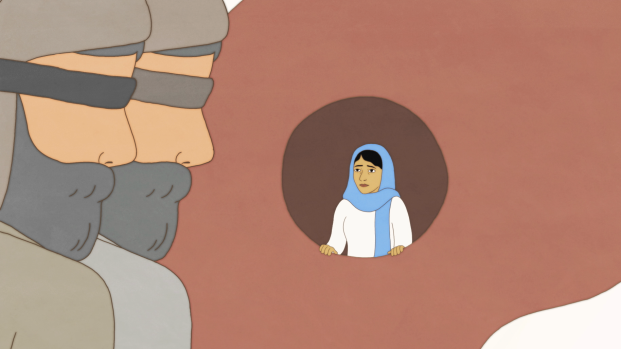
Education in Afghanistan: Don't look away now!
By Hila Limar
Journalist, engineer, judge, doctor – these were the professions that many Afghan schoolgirls responded with when I asked them about their wishes and goals for the future on the project trips I undertook as Chairwoman of Hamburg-based NGO Visions for Children e.V.
The withdrawal of NATO troops from Afghanistan and the takeover by the Taliban in August 2021 posed an acute threat to the girls’ plans for the future. When our colleagues talked to sixth-grade students at a project school in Kabul a year later, they still had the same dreams. But they were mixed with worry: ‘With the Taliban in power, I can’t become a journalist because I won’t be allowed to keep going to school after sixth grade,’ said Saba*, a sixth grader.
TALKING HUMANITY:
Battles Beyond the Battlefield: Safeguarding Girls’ Education in Conflict Zones
16 October, 6.30 pm, Dokumentationszentrum Flucht, Vertreibung, Versöhnung
In the chaos of war, education becomes a lifeline, often disproportionately denied to girls. Our panel will feature experienced journalists and humanitarian experts, who will provide a multifaceted perspective on the intersection of war, gender inequality and educational challenges. We will delve into the moral, political and logistical obstacles to providing education in conflict scenarios, spotlighting ongoing efforts to maintain girls’ access to learning. In this talk, we will be inviting our international audience to engage with the complex reality of these issues. It will be a call to take action to safeguard the universal right to education, particularly for girls living in the shadow of conflict.
Followed by a Screening of Children of the Taliban.
Partner: Global Partnership for Education (GPE)
Afghanistan is a place that many associate with war, poverty and oppression. But behind the news and political developments, we must not forget what actually makes the country tick: its people, their tireless strength despite decades of conflict and their aspirations for a better future.
The dramatic crises in Afghanistan cannot be ignored: the collapse of the economy, the collapse of the financial and health care systems, years of extreme drought, the Taliban’s seizure of power and the ensuing sanctions have deprived millions of people of their livelihoods. Children have suffered especially: hunger, little access to clean drinking water, deadly diseases and an increase in child labour are just some of the consequences. More than half of the population, some 23 million people, can no longer afford food.
At the same time, under the de facto government, one human rights violation follows the next. The rights of women and girls to work, to access education and to clothe themselves as they choose have been massively restricted. They are only allowed to travel or go to the doctor when accompanied by a male chaperone. They are forbidden from visiting parks and beauty salons, and from engaging in sport. Women are increasingly being excluded from public life, and their safety is increasingly under threat.
These are crises that can be disheartening in their magnitude. But right now, it is more important than ever not to leave the civilian population to its own devices, because it continues to fight day after day – teachers who are still in the classroom even after months without pay due to state funds that have been frozen abroad. Parents and students who, although they lack everything, are asserting their right to education and striving for a self-determined future. And last but not least, our colleagues in Afghan NGOs who, despite massive dangers and insecurities, are working tirelessly to carry out their mission, negotiating with the de facto authorities and reaching as many children as they can.
‘I am a girl, but I still have the same right as a man to contribute to and improve our society. For that, I need education,’ as Afia* summarises it at the elementary school in Kabul.
Education is the key to freedom. It enables people to look beyond their circumstances and envision a better future. It strengthens the voices of women and girls, even when people are trying to push them into the shadows. If we want to break the cycles of poverty and violence, we must invest in education.
Therefore, every day that we can remain active in Afghanistan with Visions for Children e.V. alongside our courageous colleagues and with support from our generous donors in Germany is a win. While institutional donors sometimes withdraw or suspend funding, the role of private individuals, like the members who sustain our work on a monthly basis, is all the more important and we are grateful for every single person showing solidarity with the Afghan civilian population. This conviction gives us the strength to fight for this to continue.
*Names of students have been changed for their safety.

About the author: Hila Limar has been working to improve educational opportunities for children in war and crisis zones for over seventeen years as the Executive Chairwoman of the Visions for Children e.V. association. Since 2006, the association has been implementing sustainable educational projects at schools in Afghanistan and Uganda in cooperation with local partners. It is financed by donations.


